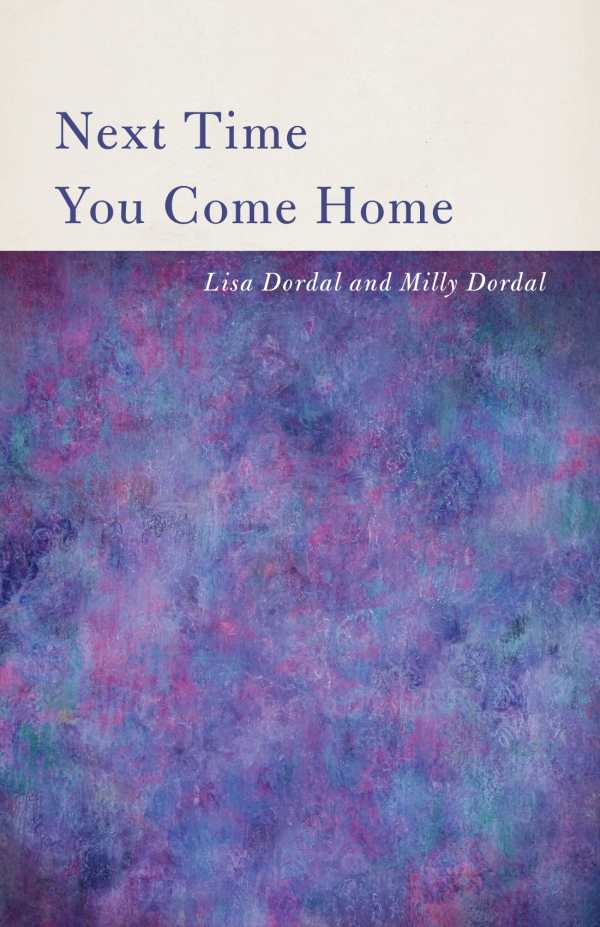Next Time You Come Home
Part memoir, part biography, part found poetry, the moving work in Next Time You Come Home reveals the daily moments that make up a life.
Lisa Dordal’s engaging and emotive cross-genre collection Next Time You Come Home transforms eighteen years’ worth of Dordal’s mother’s monthly letters into poetry.
The book opens with a brief essay that details Dordal’s fraught but loving relationship with her mother, who died in 2001. It covers Dordal’s coming out, the subsequent end of her marriage, and her mother’s alcoholism, which existed “even when she was clear-eyed (i.e., not actively drinking) during the day.” This negotiation of who Dordal’s mother was versus how she presented herself, coupled with Dordal’s grieving, informs the poems that follow.
Each poem is less than a page long, titled with the month and year of the inspiring missive’s receipt. In them, Dordal’s mother observes birds at her feeder and the state of the garden; she reflects on a concert that she and her husband attended and the political concerns of the day (local elections in Chicago, the Gulf War, and Y2K all make appearances). Neighborhood gossip is included too. These are quiet images in comparison to the tumult outlined in the introductory essay, representing a middle-class life of civic engagement, classical music, sports, reading, recipes tried and to be tried, and television.
The lines and language are conversational, as are the poems’ line breaks and stanza forms. The result is entries that are both stripped down and full of life. Understatements, paired with the notes at the end of the collection, result in moving moments, as with “May 1995”:
Supper is over—whitefish, hash browns, broccoli—
Dad is doing dishes. What a week it has been:
tears, worry, perplexity, then relief and joy.
I’m sad about your separation but understand the reason.
We’re proud of how you got through the week.
In such entries, the end notes have an elucidating effect: here, the “separation” is the process of divorce; the reason is less pronounced, though there are gestures to Dordal’s awakening to her sexual identity. In place of direct namings of particulars are allusions to unnamed, deeper griefs.
Here and elsewhere, everyday moments are imbued with darkness. Dordal’s mother is a consistent figure throughout: in the face of emotional intensity, she drops her gaze from the crucible to focus on daily dramas. Thus, notes about watching the Kentucky Derby and rooting for a woman jockey to win, or about the high asking price of a neighbor’s house, become about so much more than their outward subjects.
Part memoir, part biography, part found poetry, the moving work in Next Time You Come Home reveals the daily moments that make up a life and hints at how external projections conceal inner lives.
Reviewed by
Mike Good
Disclosure: This article is not an endorsement, but a review. The publisher of this book provided free copies of the book and paid a small fee to have their book reviewed by a professional reviewer. Foreword Reviews and Clarion Reviews make no guarantee that the publisher will receive a positive review. Foreword Magazine, Inc. is disclosing this in accordance with the Federal Trade Commission’s 16 CFR, Part 255.

